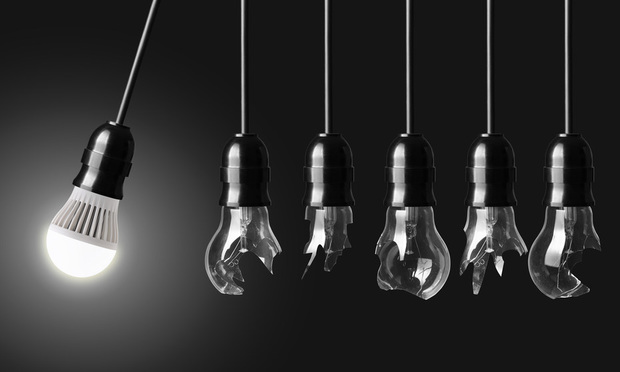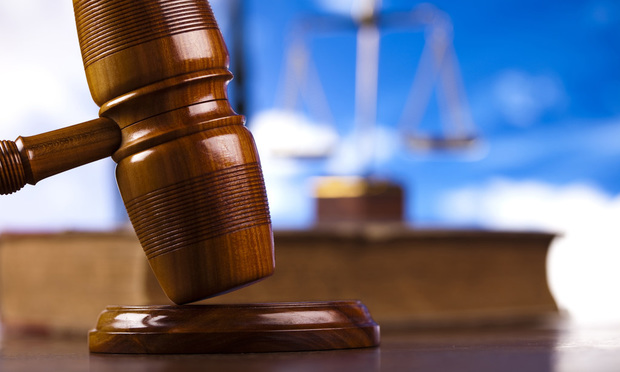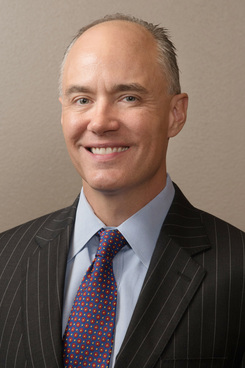David K Bissinger

August 08, 2018 | Texas Lawyer
Want to Improve Your Trial Skills? Be Cognizant of the ClockLawyers, penned up in their offices, are poor candidates for entertaining twelve strangers when those strangers have become accustomed to the instant gratification every juror has available on a mobile device.
By David K. Bissinger
5 minute read

April 30, 2018 | National Law Journal
How to Identify Bias in the CourtroomLawyers will enjoy more success in their practice by acknowledging, rather than ignoring, the natural biases of the participants and developing a practical understanding of bias in their practices.
By David K. Bissinger
5 minute read

August 23, 2016 | Texas Lawyer
The Documentary Model for Trial BudgetsEveryone knows about the cost of trials. A September 2008 article published in the Journal of Empirical Legal Studies concluded that in most of the cases studied, settling would have saved the parties money. But certainly some of those cases that go to trial cannot, will not, and should not settle. In deciding how to draw the line, lawyers should consider the cost in the 2008 study in conjunction with the cost of an analogous type of work: a documentary film.
By David K. Bissinger
10 minute read
December 29, 2010 | The Legal Intelligencer
Litigators Who Hope to Exclude Evidence Face ChallengesCivil litigators often overestimate the amount of evidence courts will exclude. Fewer trials mean that litigators focus more on the technical rules of exclusion than on the exceptions, which in many instances threaten to swallow the rules. Sitting at their desks with large stacks of e-mail evidence, litigators imagine every possible ground of exclusion. The billable hour tends to encourage many litigators to undertake this analysis with zeal.
By David K. Bissinger
5 minute read

September 18, 2007 | Law.com
Make Complex Facts Easy for Jurors to UnderstandThanks to technology and the vanishing jury trial, every complex case risks becoming a quagmire of disorganized data. But attorney David Bissinger says salvation for lawyers and jurors lies in summaries because they deliver the most value when the court admits them into evidence, and summary exhibits will drive the closing argument and jury deliberations. Bissinger explains what summaries trial lawyers should use as well as how attorneys can prepare themselves for summary.
By David K. Bissinger
5 minute read
March 17, 2008 | Texas Lawyer
Management: Preparation, Not Spontaneity, Leads to VictorySophisticated clients as well as those new to the legal system appreciate the value of good arguments. That's the part of the case they understand best, says David K. Bissinger, a trial lawyer and partner in Siegmyer, Oshman & Bissinger in Houston. Before doing anything else, he says, prepare the jury argument.
By David K. Bissinger
6 minute read
December 29, 2010 | The Legal Intelligencer
Litigators Who Hope to Exclude Evidence Face ChallengesCivil litigators often overestimate the amount of evidence courts will exclude. Fewer trials mean that litigators focus more on the technical rules of exclusion than on the exceptions, which in many instances threaten to swallow the rules. Sitting at their desks with large stacks of e-mail evidence, litigators imagine every possible ground of exclusion. The billable hour tends to encourage many litigators to undertake this analysis with zeal.
By By David K. Bissinger
5 minute read

December 13, 2010 | Legaltech News
The Ins and Outs of Excluding EvidenceSitting at their desks with large stacks of e-mail evidence, civil litigators imagine every possible ground for exclusion, says trial lawyer David K. Bissinger. But they often overestimate the amount of evidence courts will exclude and need to consider how three principles of evidence work.
By David K. Bissinger
5 minute read
August 08, 2007 | National Law Journal
The Smoking E-MailMany articles talk about the new e-discovery rules, but few address how to use electronic information in examining witnesses. Electronic discovery has changed not just the rules of document production, but also how to use these materials when questioning and preparing witnesses.
By David K. Bissinger
5 minute read
December 31, 2007 | Texas Lawyer
When to Use the Element of SurpriseImagine discovering that an opponent has presented fabricated evidence. Imagine further that the opponent's lawyer has failed to see it. Is it best to confront the opponent with this information in deposition or hold on to it for a surprise at trial? In this age of the vanishing jury trial, do surprise tactics even make sense?
By David K. Bissinger
6 minute read
Trending Stories
- 1$1.9M Settlement Approved in Class Suit Over Vacant Property Fees
- 2Former Wamco Exec Charged With $600M 'Cherry-Picking' Fraud
- 3Stock Trading App Robinhood Hit With Privacy Class Action 1 Month After Alleged Data Breach
- 4NY High Court Returns Fired Priest's Discrimination Claim to State Agency
- 5Digging Deep to Mitigate Risk in Lithium Mine Venture Wins GM Legal Department of the Year Award
More from ALM
- Legal Speak at General Counsel Conference East 2024: Match Group's Katie Dugan & Herrick's Carol Goodman 1 minute read
- Legal Speak at General Counsel Conference East 2024: Eric Wall, Executive VP, Syllo 1 minute read
- Legal Speak at General Counsel Conference East 2024: Virginia Griffith, Director of Business Development at OutsideGC 1 minute read



